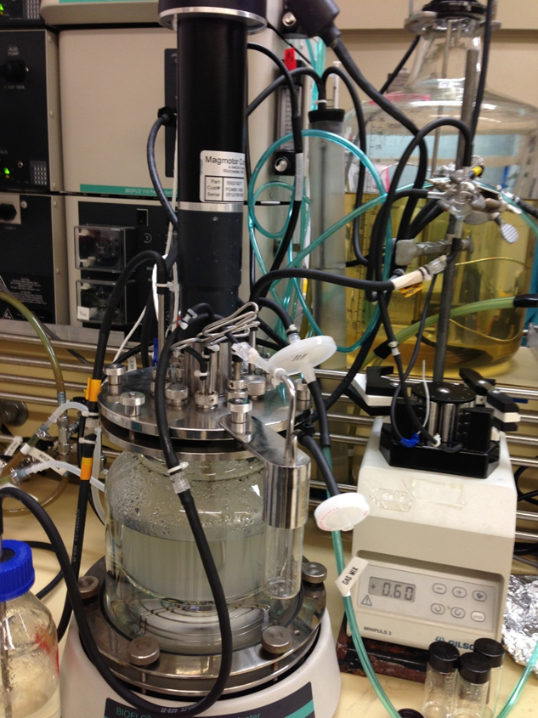
Oak Ridge National Laboratory (ORNL) researchers in collaboration with Biota Biosciences, Inc., and Elanco Animal Health are working to understand and overcome plant biomass recalcitrance by studying the bacterium Fibrobacter succinogenes S85, an active and dominant cellulolytic member of the rumen.
Microorganisms are key components for plant biomass breakdown within rumen environments. To better understand the limitations of a key rumen fermentative microorganism at lower pH, they studied F. succinogenes type strain S85 as a model organism using chemostat cultivation and systems biology tools. Fibrobacter spp. are able to ferment xylan, glucose, cellobiose and cellulose to form succinic, acetic and formic acids.
Since anaerobic cellulolytic bacteria generally do not grow below pH 6.0, there is a biotechnological interest in fermentation processes and enzymes that can operate in lower pH conditions. The adapted strain S85 grew at a steady state continuous culture at pH 5.75 and grew in the range of pH 5.60-5.65, which is lower than has been reported previously.
“This study extends the known lower pH limits, which is a logarithmic scale, for Fibrobacter growth and provides insights into pH homeostasis for anaerobic cellulolytic bacteria. Others may be able to build upon these new results for further strain and process developments”- Steve Brown
Wu, C-W. et al., “Generation and Characterization of Acid Tolerant Fibrobacter succinogenes S85” Sci. Rep.., 2017, doi:10.1038/s41598-017-02628-w



